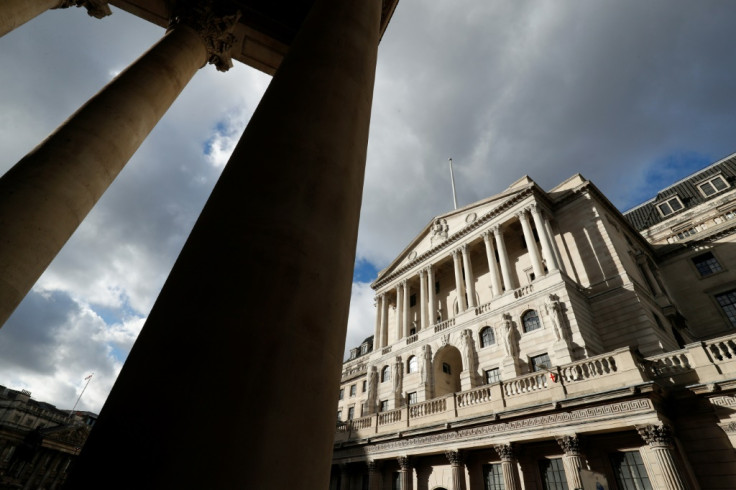Bank of England holds interest rates as Brexit looms
British Prime Minister Boris Johnson wants to embrace Brexit and kick-start growth in Britain's stalling economy.
The Bank of England on Thursday froze interest rates at 0.75 percent before Brexit next month, but left the door open to a reduction in the event of fresh turmoil.
The Monetary Policy Committee (MPC) voted 7-2 to hold borrowing costs, according to minutes of the two-day December gathering, with policymakers Jonathan Haskel and Michael Saunders repeating their November call for a 0.5 percentage point cut.
Thursday's decision was the first since British Prime Minister Boris Johnson's election triumph one week ago, and comes ahead of Britain's departure from the European Union on January 31 -- when BoE Governor Mark Carney is also due to step down.
The premier, whose ruling Conservative Party won the biggest majority since the 1980s heyday of Margaret Thatcher, wants to embrace Brexit and kick-start growth in Britain's stalling economy.
The BoE's chief task is to keep British 12-month consumer price inflation close to a 2.0-percent target.
"Monetary policy could respond in either direction to changes in the economic outlook in order to ensure a sustainable return of inflation to the 2.0-percent target," the minutes read.
"The committee will, among other factors, continue to monitor closely the responses of companies and households to Brexit developments as well as the prospects for a recovery in global growth.
"If global growth fails to stabilise or if Brexit uncertainties remain entrenched, monetary policy may need to reinforce the expected recovery in UK GDP growth and inflation."
In the absence of those risks and if the economic recovery strengthens as expected, the bank added it may need to tighten policy to keep inflation on target.
The MPC cautioned however that there was "no evidence yet" about whether economic uncertainty had diminished among Britain's companies and households.
And it also acknowledged that there had been an easing in the long-running trade war between China and the United States.
"Global growth has shown tentative signs of stabilising and global financial conditions remain supportive," the minutes read.
"The partial de-escalation of the US-China trade war provides some additional support (since the November rate decision) although trade tensions remain elevated."
Britain's economy had avoided recession in the third quarter but there are increasing signs of slowing activity heading into the New Year, according to the latest data.
The bank stressed Thursday that it expects the economy to gather pace, in line with its November forecast.
"UK GDP growth was projected to pick up from current below-potential rates, supported by the reduction of Brexit-related uncertainties, an easing of fiscal policy and a modest recovery in global growth," it said.
Gross domestic product grew 0.3 percent in the July-September period after a 0.2-percent contraction in the second quarter.
Ahead of Thursday's decision, the BoE had launched a probe after discovering some investors eavesdropped on press briefings moments before they were broadcast, reportedly to hand a split-second advantage to high-speed traders.
The Times newspaper had reported that one of the BoE's suppliers had been sending a market-sensitive audio feed of the bank's press conferences to hedge funds moments before the rest of the world.
The BoE has identified the feed that had been misused by a third-party supplier -- whose access had now been revoked.
Copyright AFP. All rights reserved.

This article is copyrighted by International Business Times, the business news leader





















